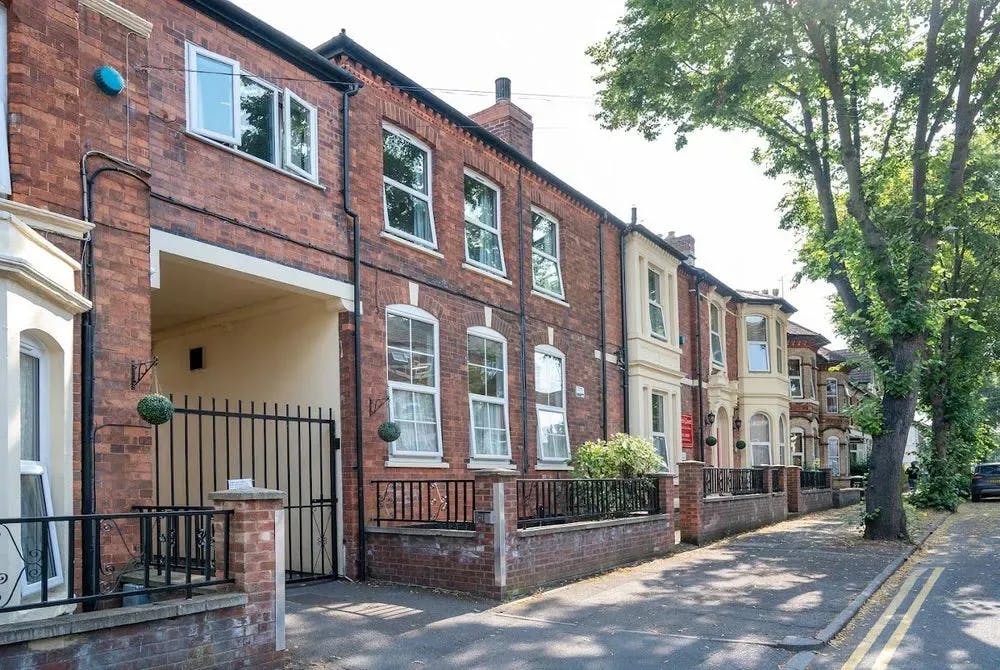Can My Son or Daughter Continue To Live In My House If I Go Into Care?

Estimated Reading Time: 6 minutes
This article was reviewed by Sara Chapin, Director of Finance at Lottie, on 16th December 2024, to ensure accurate and trustworthy information for care seekers. Sara Chapin has been a Certified Public Accountant with the National Association of State Boards of Accountancy since 2017. Next review due December 2025.
If you’re going into care - whether this is in a care home or you’ll be receiving care at home - you may be wondering what this means for anyone else living in your home. Here, we’ve explained if your son, daughter or other family member can continue living in your house if you go into care.
We’ve also explained how mandatory disregards and individual exceptions for paying care fees work, along with who pays for care and whether you’ll be forced to sell your house to pay for care.
Browse recommended local homes
Compare care homes with availability near you.
In this article:
- Can my son or daughter continue to live in my house if I go into care?
- Mandatory disregards for care fees
- Individual exceptions for paying care fees
- Who pays for care?
- Will I be forced to sell my house to pay for care?
Can My Son or Daughter Continue To Live In My House If I Go Into Care?
Whether your son or daughter can continue living in your house if you go into care depends on a few factors, such as the setting in which you’ll receive care.
Your property will be considered during a financial assessment if you're going into a care home. In this case, you may have to sell your home to pay for care, meaning your son or daughter wouldn’t be able to continue living there. This assessment works out the total value of your savings and income (and assets if you’re entering a care home) to determine if you’ll pay for your own care, or whether your local authority will pay for you.
If you require home care, your home won’t be considered during a financial assessment, and your children can continue living there unaffected.
There are other exceptions where your home won’t be included in the financial assessment, even when going into a care home. We’ve explained these below, along with other options to potentially avoid having to sell your home.
Mandatory Disregards For Care Fees
A mandatory disregard is where the value of your property isn’t included in the financial assessment given by your local authority when going into a care home. This applies if you no longer live in your home, but one of the following people still lives there (and this home is their main or only residence):
- A spouse, partner or former partner
- A single parent who is your divorced or estranged partner
- A family member who is either aged 60 or over, your child aged under 18, or classed as ‘incapacitated’
For a mandatory disregard to apply, the person must have lived in your property before you started living in the care home. This mandatory disregard will be valid until the person’s living situation changes, such as if they move out of your home. At this point, the property may then be counted in the financial assessment.
If a mandatory disregard applies to your son or daughter who lives in your home, they can continue living there when you go into care.
A mandatory disregard most commonly applies when somebody moves into a care home while their partner still lives in their jointly-owned home. In this case, the home won’t be included in the financial assessment for care fees, provided the person continues living there.
Individual Exceptions For Paying Care Fees
If a mandatory exception doesn’t apply to your son or daughter living in your home after you’ve gone into care, local authorities will also sometimes make individual exceptions. This is done at their discretion, though.
However, if your son or daughter requests a ‘discretionary disregard’, the local authority must give this full consideration.
The local authority may choose to make an individual exception and not include your house in a financial assessment if it’s the permanent home of someone who has been caring for you, such as a child or friend. For as long as they are living there, the local authority can decide whether to include the value of your home in their assessment.
This is more likely to apply in the case of a carer who has given up their own home to look after somebody with dementia, but it still isn’t mandatory in this case.
If the local authority decides against using their discretion to apply a disregard in your son or daughter’s case, they must explain why they’ve made this decision. If you aren’t happy with the decision, you can formally complain through your local authority’s complaints procedure. Find your local council here.
Who Pays For Care?
A financial assessment works out the total value of your savings and income (and assets when going into a care home). Depending on this total, you’ll either be classed as a self-funder, meaning you’ll have to pay for your own care, or you’ll be eligible for local authority funding with paying for care.
You can find the savings thresholds by each part of the UK in our financial assessment article.
The NHS will also pay for some or all of your care in some cases. You could be eligible for NHS-funded nursing care if you receive care within a nursing home. Here, the NHS will contribute weekly towards your nursing care fees. Similarly, if you have care needs classed as ‘complex’ and ‘unpredictable’, you could be eligible for NHS continuing healthcare. In this case, the NHS will fully fund the cost of your care. You can only claim one of NHS-funded nursing care and NHS continuing healthcare.
When paying for your own care, disability benefits such as Attendance Allowance (for people above the State Pension age) and Personal Independence Payment (for people below the State Pension age) can also be used to cover some of the care costs.

Will I Be Forced To Sell My Home To Pay For Care?
If you need home care, you won’t need to sell your home to pay for care, as it won’t be included during your financial assessment.
If you require care and support in a care home, owning a property means you’ll almost
always have assets and savings above the care threshold for your country, as this will be included in your assets during a financial assessment.
People who can’t or don’t want to sell their homes often use deferred payment agreements to avoid doing so. You can speak to your local council about whether this is an option. If it is, they’ll pay your contribution towards your care home fees, then reclaim the money after you’ve passed away or your property is sold.
Other options to avoid selling your home to fund your care include care annuities and equity release.
While people often have to sell their homes to pay for care when going into a care home, this may not be the case if a mandatory disregard or individual exception applies, and we’ve discussed both of these above in this article.
Loading FAQs...
Loading the form...



